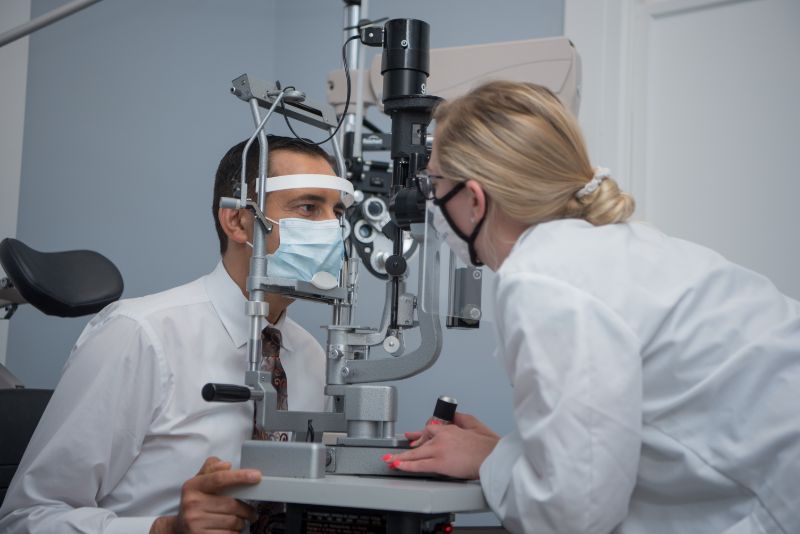
Whether you notice changes in your eyesight or it’s time to schedule a routine eye exam, choosing an eye doctor is the most critical step to ensure quality eye care.
Once you find a good eye doctor close to home, you always have a trusted provider to work with.
However, there are times when choosing a new eye doctor is necessary. For example, if you have recently moved or need to find a provider who offers specialized services.
Where should you look to find professional care for your eye care needs? Usually, doing a search on Google should show multiple offices in your area.
However, with so many eye doctors available, how do you pick a provider that is the best fit for you and your family?
Follow these tips to choose an eye doctor so you can have confidence in the quality of service you receive.
Patients need to understand the type of provider they can consult because the skill set and available services vary depending on the eye doctor you choose.
The phrase “eye doctor” is a general term that people use, but there are actually distinct professional services you should know about:
Often, families choose optometrists for general eye care services. But there is an advantage to selecting an ophthalmologist instead. Consulting an ophthalmologist means you can receive both general eye care and medical services in one convenient location.
There are often situations where optometrists need to refer patients to visit an ophthalmologist because the patient’s eye condition goes beyond the general services offered by an optometrist.
Make sure you know what type of eye doctor you need when choosing a provider for yourself or a family member.
Find out more about the provider you plan to visit. You can ask a few questions when you book the appointment to learn more about them, such as:.
It goes without saying that the eye care industry has changed in recent years. Technological development makes it possible to optimize the overall experience for each patient.
As eye care technology continues to improve, make sure you visit an eye doctor committed to staying current in the industry.
The best eye care teams leverage new technology to provide cutting-edge services to their patients.
Not only does modern technology help you feel more comfortable during the appointment, but these tools also improve the accuracy and speed of your diagnosis.
Visiting an eye doctor with modern technology and related experience means you can save money in the long run because of how quickly and effectively they can complete your diagnosis.
Word of mouth is always a great way to find a trusted eye doctor or another provider. If you need to see an eye doctor, reach out to friends and family members to see if anyone has recommendations.
These personal references can be great, especially when you trust the person who provides the recommendation.
Another solution is to ask your primary care physician for a referral. For example, your primary care provider may help with diabetes management. In that case, they can provide a referral to a local ophthalmologist so you can also monitor your eyes for diabetic complications.
Not only is the internet a great resource for finding local providers, but you can also use search engines to see what other people are saying about the eye doctor you are considering.
Reading online reviews is like talking to a friend for a referral. Other people post information about their experiences online to give you an idea about what you can expect if you choose a specific eye care provider.
When you need eye care services, you don’t want to wait months before seeing an eye doctor. Ask about the provider’s availability to get the prompt service you deserve.
Yes, it’s a good sign when an eye doctor is busy because it probably indicates that the doctor has many long-term patients. In addition, the ongoing relationship between patients and their doctors is a good sign of trust and quality services.
At the same time, you need to make sure that your eye doctor will be able to fit you into the schedule when you need an appointment. If you find that your provider is never available, it might be best to find another eye doctor.
One option to consider is to choose an eye care clinic with multiple providers. Having several eye doctors in the office improves the likelihood that you will be able to schedule a short-notice appointment when needed.
For example, if you have an eye care emergency and your regular eye doctor is out of town, you can visit with one of the other providers in the office instead.
Cost is always a factor when you seek medical services. If you have vision insurance, the first step is to learn more about your coverage.
Ask questions about how to choose an in-network eye doctor. Then, you can reach out to the insurance provider for more information. You can also talk to the staff at the eye clinic you are considering, and they can help you understand available coverage.
Price matters, which is why you should always know your anticipated out-of-pocket costs before scheduling the appointment. There’s no point in booking an appointment with an out-of-network doctor unless you are ready to pay for the appointment in full.
It’s also a good idea to learn more about the cost of the services you will be receiving. Asking about price is especially important if you don’t have vision insurance and you will be paying for the services on your own.
Remember: Your vision health is a critical part of your well-being. And paying for the quality services you need to protect your eyes is an investment.
While the eye doctor’s training and experience are some of the most important factors to consider, it’s also wise to ensure you have a good personality fit.
When you walk into the eye care clinic, do you experience a welcoming, positive atmosphere? You need to feel comfortable during your appointments, which is why you should consider the provider’s bedside manner.
Most patients want to work with patient-focused, professional, and supportive doctors. The best outcomes happen when an eye doctor partners with each patient in creating a personalized treatment plan based on the person’s unique needs and preferences.
Optometrists offer the services you need if you are looking for a routine eye exam or contact lens fitting. But keep in mind that the available services are limited if the office does not also have an ophthalmologist.
Since optometrists provide general eye care services, there is a possibility that you will be referred to another eye care clinic if you need eye surgery or specialized medical care.
Visiting an ophthalmologist is an excellent choice if you are looking for a convenient provider who offers everything you need in one office. Remember that an ophthalmologist can help with everything an optometrist provides: prescriptions, checkups and examinations, diagnosis, and more.
How do you know when it’s time to schedule an eye care appointment? It’s recommended that most people schedule a comprehensive eye exam every few years. But more frequent appointments are necessary if you have certain medical conditions, such as diabetes or glaucoma.
Here are a few indications that you should book an appointment with an eye doctor:
Maintaining good eyesight is vital at every age. No matter your current vision or eye health, it’s essential that you are proactive about comprehensive eye exams.
This helps identify possible vision issues in the earliest stages.
Eye doctors help with diagnostics and prescription management. Additionally, they assist patients to prevent future eye care issues.
At EyesNY, we aim to educate patients about lifestyle choices and habits to protect their eyes from injury while reducing the risk of eye diseases.
If you are looking for a local eye doctor, we invite you to contact us at EyesNY to learn more about our services. Our team is just a phone call away and ready to help your entire family with eye care services.
Malta
658 Malta Ave., Ste 101
Malta, NY 12020
Phone: (518) 580-0553
Saratoga Springs
414 Maple Ave Ste 200
Saratoga Springs, NY 12866
Phone: (518) 580-0553
Clifton Park
1712 U.S. 9
Clifton Park, NY 12065
Phone: (518) 580-0553
Queensbury
535 Bay Road
Queensbury, NY 12804
Phone: (518) 580-0553
Troy
2200 Burdett Street Ste 206
Troy, NY 12180
Phone: (518) 580-0553
